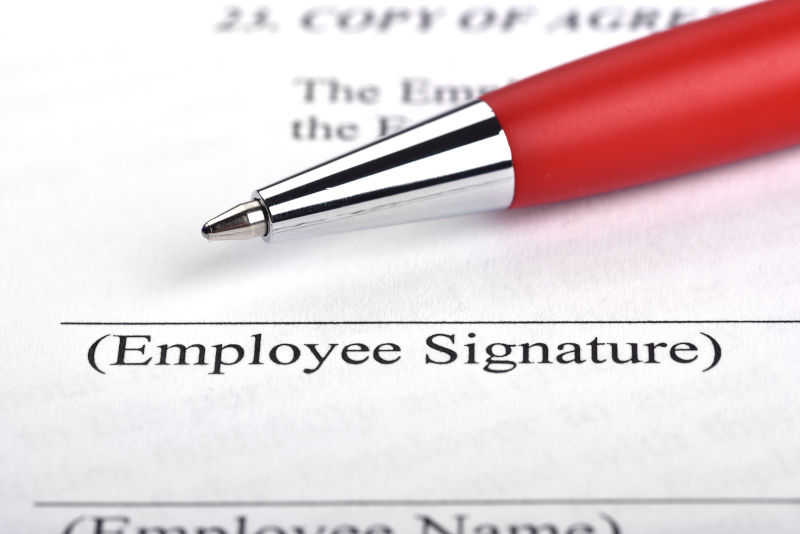
Time away from work
An absence from work following your injuries can easily lead to financial losses. Although, if you are fortunate, your employer may have arrangements which allow you to receive full pay for a period of absence. Also, as an employee, you will be entitled to Statutory Sick Pay as a legal minimum – though this may be much less than your usual wage.
However, in both cases, time limits will apply. Your employer is unlikely to pay you a full wage indefinitely, and Statutory Sick Pay is only payable for a period of up to 28 weeks. This means, for more severe injuries, losses can start to mount.
Claiming compensation will often be your best chance of recovering these losses. Where your injuries have directly caused lost earnings, or prevented other income, you may be able to claim compensation for them as part of a clinical negligence claim. This will be in addition to compensation for your injuries themselves. For more information on this, download our free ebook on personal injury compensation and have a look at the chapter on ‘Loss of Earnings’.
Life-changing injuries
Employment rights are perhaps more heavily involved in those situations where you have suffered life-changing injuries.
If you have suffered very severe injuries, they may be classed as a disability under the Equality Act 2010. The Act defines a disability as:
- A physical or mental impairment, which;
- Has a substantial and long-term adverse effect on your ability to carry out normal day-to-day activities.
If your injuries meet these criteria, your employer is legally obliged to make ‘reasonable adjustments’ in order to assist your return to work, or to aid your continued work. This means that your employer should make changes to remove any substantial disadvantages that will affect you and your ability to carry out your job.
Such changes may include:
- Modifying your duties.
- Adjusting your work station.
- Changing your place of work.
- Altering your working hours.
- Allowing you longer or more frequent breaks.
- Making adjustments to improve accessibility (if you have mobility issues).
- Any other changes which could prevent you from being disadvantaged.
Naturally, your injuries may mean you will need more time off work. Therefore, your employer should also consider introducing some flexibility to their sickness or absence policies to account for your particular circumstances. For example, we would expect your employer to adjust absence ‘trigger points’ (where further action might be taken) when your absence is disability-related.
Disability discrimination
If your employer does not make reasonable adjustments then they could be liable for disability discrimination towards you. Discrimination under the Equality Act 2010 means to treat someone less favourably due to them having a ‘protected characteristic’. Disability is one of these protected characteristics.
Generally, discrimination can take one of two forms: direct or indirect discrimination.
- Direct discrimination occurs if your employer treats you less favourably than someone else because of the protected characteristic, i.e. because of your disability.
- Indirect discrimination occurs when your employer has a rule, practice or policy, which applies to everyone in the same way, but has a less favourable effect on you because of the protected characteristic.
Whilst direct discrimination can never be justified by an employer, indirect discrimination can sometimes be regarded as reasonable if the policy or practice solves a real business need and it is a proportionate way of achieving it.
Nonetheless, either kind of discrimination could form the basis of a claim against your employer.
Seeking redress…
…For discrimination at work
Truth Legal can provide advice and guidance if you believe you have experienced any disability discrimination. Our experienced and dedicated Employment Law team is ideally placed to help you with your claim.
…For a medical mistake
Unfortunately, some kinds of injury make it very difficult, if not impossible, for you to return to work. It may mean you have to change your career; it could even mean you will never work again. In these situations, even reasonable adjustments on your employer’s part will not be enough to allow you to return to work.
At Truth Legal, we understand what a huge difference this can make to your life. We have helped countless clients in similar situations to rebuild their lives through securing the compensation they deserve.
We take the time to carefully consider the unique consequences you have experienced after your injury. Not only does this allow us to claim the right compensation for you, it means we can take action which is most helpful to you, such as seeking early advances of compensation (known as interim payments). Any specialist clinical negligence firm should do the same, but if your claim is with a high-volume claims factory sadly this attention to your needs can be neglected. Fortunately, you can switch solicitors on your claim whenever you wish.
If you would like to discuss any of the issues raised in this article, or you need advice on your legal situation, please contact us.
Further Reading
From one of the UK’s most read legal blogs.











